The masters of real estate blogging have finally given you a backstage pass to exactly how they get more engagement, clicks, leads, listings, and closing and develop their “raving fan” tribes, in this blog post and video!
WHAT IS BLOGGING?
Blogging is a place to share your thoughts and passions, your knowledge and experience. Some say it can be whatever you want it to be. A blog is simply an entry you’ve posted on the internet with content updated on a regular basis, usually daily or weekly. A blog is created to convey a message that can be either personal or professional, or both.
The message you share through a blog post allows readers to know who you are. Nowadays you will find most real estate professionals blog frequently. Whether you are a large brokerage, a small- to medium-sized team, or a one-man show, anyone can blog.
As blogging has become a major marketing avenue, there are many questions as to what makes one successful. There are many components needed to create a successful blog, including but not limited to: personality, opinions, and patience.
In the video below, titled “Masters of Real Estate Blogging,” Michael Hellickson of Club Wealth engages in a Q&A with Tyler Zey and Kelvin of Easy Agent Pro, Tristan Ahumada of Lab Coat Agents and Keller Williams, Kyle Hiscock of Rochester Real Estate Blog (Real Estate Co.), and Bill Gassett of Maximum Exposure Real Estate (Real Estate Co.).
Along with answering questions from our viewers, they discuss several topics, such as their social medial strategies and how to increase your ROI (return on investment) from blogging.
Since the main purpose of a blog is to share information in an engaging, helpful way, Tyler Zey discusses a general philosophy that you must GIVE in order to GET business. He highlights that blogging is something you work on once, but it keeps on giving back.
Kyle Hiscock explains how blogging allows you to give information in a way that portrays you as an expert of a particular market. He also points out that blogging helps build businesses through time, based on the blogger’s ability to provided consistent, high-quality information long-term.
Free KILLER Blog Checklist Download
WHAT DOES BLOGGING NOW DO FOR ME IN THE LONG RUN?
Hiscock, whose blog has been public since December 2013, notes that the results of blogging are not instant. It takes time, energy, and patience to become a successful blogger. Zey points out that you are building up the equity of traffic for the future.
WHAT DOES A SUCCESSFUL BLOG CONTAIN?
Club Wealth’s CEO, Michael Hellickson, believes every successful blog should ALWAYS target a specific audience, and always have stellar content.
Easy Agent Pro’s Zey encourages bloggers to be engaging, funny, and helpful. His three steps to real estate blogging:
-
Designing – Make it useful, engaging, and entertaining
-
Distribution – Where and how are you displaying and sending your message?
-
Conversion – What type of return are you looking to get out of your blog?
Zey mentions a real estate blog posted by Kyle Hiscock on Zestimates and how over-valued vs. under-valued Zestimates measure up to actual property sale prices. (Did you know that the owner of Zillow sold his home for 40% less than its Zestimate?)
STRATEGY FOR BLOG TRAFFIC AND LEAD CONVERSION
Bill Gassett of Maximum Exposure Real Estate discussed his blogging process when it came to his Divorce and Real Estate post. His first step was to decide on his target audience/market: Sellers.
After thorough research and a successful blog post, Gassett received feedback in a few different forms. His blog not only had comments from readers; he also received a few phone calls from potential clients wanting to interview him.
DON’T FORGET, YOU MUST GIVE TO GET!
Zey and Hiscock discussed a simple philosophy: you must GIVE information in order to GET business.
“Blogging is not direct marketing”, says Zey. “Blogging is a long term play for people to understand you are an expert within your market. You must be patient in lieu of results.”
One thing that sticks from Zey’s discussion of his blogging technique is when he mentioned he does NOT look at individual post ROIs.
Watching your ROI results so closely tends to paralyze bloggers, which results in a lack of fresh content on the site.
Zey also suggests that the real estate market itself determines success, not just your blogging skills. Posting helpful and consistent information over a long period of time tends to beat most competition and market issues.
“Blogging is not a short term strategy,” says Hiscock.
The best thing to remember is to be calm and write what you know. Don’t put pressure on yourself to write blogs on topics that don’t interest you because it will show in your writing. Clients and customers don’t want to read dull material anymore thank you want to write about it. You are your own brand; make sure it’s a trustworthy one.
HOW FREQUENTLY SHOULD YOU BE BLOGGING?
Trista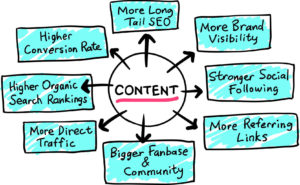 n Ahumada from Lab Coat Agents gives the best advice for beginning real estate bloggers: start small. He suggests when you are out on a site and taking photos, add three sentences to each picture when you post it.
n Ahumada from Lab Coat Agents gives the best advice for beginning real estate bloggers: start small. He suggests when you are out on a site and taking photos, add three sentences to each picture when you post it.
A general consensus between these masters of real estate blogging is to simply start blogging.
Start somewhere and just go for it. Don’t overthink your blog and don’t try and make it perfect every time.
Don’t give up. Don’t get discouraged when your blog isn’t as popular as you want it to be. You will be faced with many different challenges when blogging, such as SEO (search engine optimization) scores and multiple social media platforms, those with and without ads.
Each one of these serves a different purpose. Your SEO scores from search engines including Google, Bing, Yahoo are part of the algorithm used to determine who sees your blog, which in turn can increase the amount of visitors to your webpage.
Bill Gassett points out the time you will waste if you don’t follow through on your SEO actions as you originally intended.
Gassett’s blog strategy consists of:
-
1700-2300 words per blog
-
Weekly postings
-
A goal to be on the first page of search engine results
-
3-4 images per post
Hiscock keeps a 2000-2100 word count, depending on the topic. He urges bloggers not to write based on a word count alone, as you don’t want to add a lot of fluff to an article just so it will be longer.
Kelvin at Easy Agent Pro believes differently. He holds a higher regard for the quality of his work rather than his SEO count. Where Zey, also from Easy Agent Pro, finds videos within a blog tend to lead to more conversions, whereas word count tends to rank higher on the Google SEO scale.
Ahumada’s advice on blogging: Repurpose blogs for more site interaction.
Club Wealth’s® Michael Hellickson has a unique way of creating his blogs. He shares his process:
-
Outline the topic
-
Make a video discussing bullet points from the blog
-
Have your assistant write the blog
-
You edit the blog
-
Roughly nine images per post
-
Four or five links within each post
-
Assistant posts the blog
For a full version of Club Wealth’s® KILLER Blog Checklist, sign up for the free download under the Masters of Real Estate Blogging Webinar Replay video.
BUSINESS VS. COMMUNITY BLOGS
Our blog masters agree that when it comes to the type of blogs you write, localize as much as possible.
Yes, general real estate blogs can be helpful, but more than likely a reader already knows what they are looking for and it’s up to you and your blog content to attract them.
Localizing allows a blogger to create community pages for more colorful information such as parks, restaurants, and community life. It allows the blogger to become more passionate in their writing, which the reader will notice.
PAID TRAFFIC VS. ORGANIC TRAFFIC
The type of traffic a site receives goes hand-in-hand with the site’s content.
Ahumada claims that site traffic depends largely on loyal readers. Kelvin from Easy Agent Pro simplifies organic traffic as someone who’s already searching for the content you’ve provided which leads to better conversion rates.
The key to gaining the most organic traffic on your site lies within consistently posting stellar content.
Would you want to watch or read it yourself?
SHOULD A SITE BLOCKER BE USED TO HIDE CONTENT?
Each blogger has his/her own preference. Some will provide the entire site free of charge, where others want you to register just to read a blog post. There are positives and negatives to each.
No Site Blocker
Not having a site blocker allows readers to fully view all content you have on your site for free. You cannot track your audience, and it may be harder to keep your content from being stolen.
Site Blocker
A site blocker or forced registration will only allow a visitor to view a limited amount of content prior to registering on your site. Having a site blocker forces the readers to at least register before continuing on the site. Having this feature allows the blogger to see what type of traffic their blog is attracting. It is said that forced registration works the best for conversion.
A simple example of how to use both of these strategies: free access to the blogs but use a site registration feature before a visitor can view multiple listings.
SHOULD I BE POSTING MY BLOGS ON 2 DIFFERENT BLOGGING FORUMS/SITES?
NO! Original content should always be posted on your site alone. If you post your content on another site, said site may eventually outrank yours. Use your content to beef up your website hits and views. Why use your content to help out a competitor?
Blogging can be difficult or easy. Whatever you decided to blog about, make sure you are passionate about it. Make sure you respect your topic. Make sure you have fun with it, because it will show in your writing.
Click here to MEET THE MASTERS OF REAL ESTATE BLOGGING!
 As our way of saying thank you for taking the time to read this blog, we invite you to a FREE, 55-minute, NO PITCH, one-on-one coaching call with a Club Wealth® coach! Request your Strategy Session!
As our way of saying thank you for taking the time to read this blog, we invite you to a FREE, 55-minute, NO PITCH, one-on-one coaching call with a Club Wealth® coach! Request your Strategy Session!




























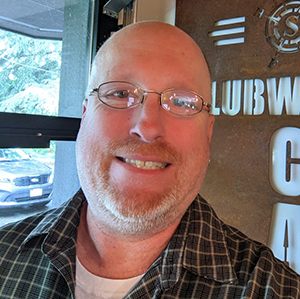







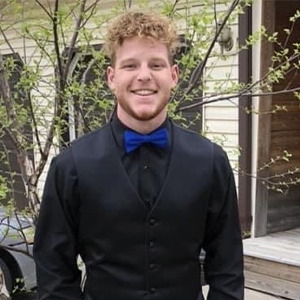






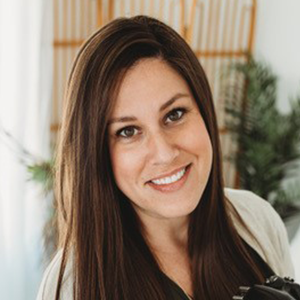







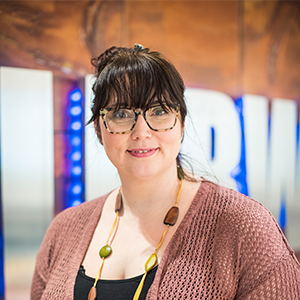


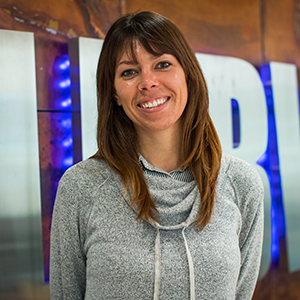







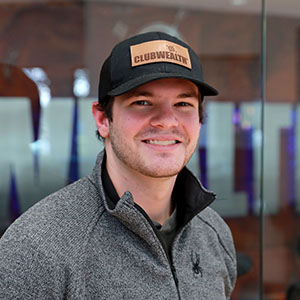






























































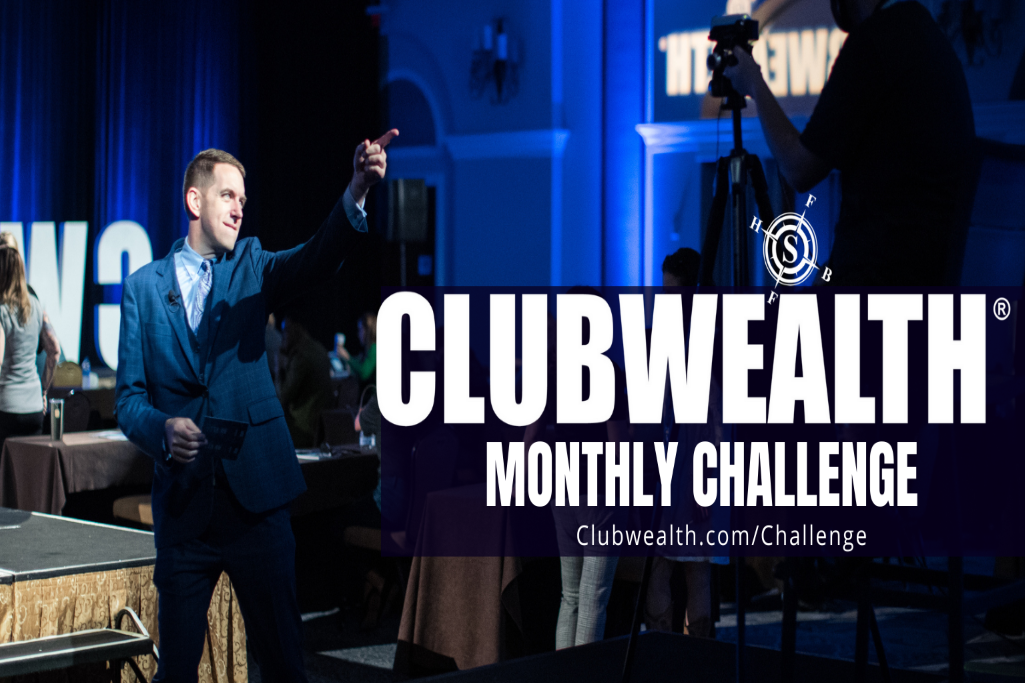

Great Article. All topics in this blog about real estate are quite interesting to read. Thanks.
Thank you for the effort, keep up the great work Great work.
Thank you very much for all the information you share…It is very relevant and helpful.